The Journey of being Child-Free
In a society where having children is often seen as an inevitable part of life, Shovna chose a path that aligned with her own vision of fulfillment. Her decision to remain child-free emerged from years of thoughtful reflection and a shared understanding with her partner. While facing ongoing questions and emotional pressure from family, Shovna remained steadfast in her choice, carving out a life where her aspirations and priorities could flourish without compromise. Her story is one of courage, self-discovery, and the empowerment of making a choice that feels right for her, despite societal expectations.
- Keerthana Kowshik
- May 13, 2025
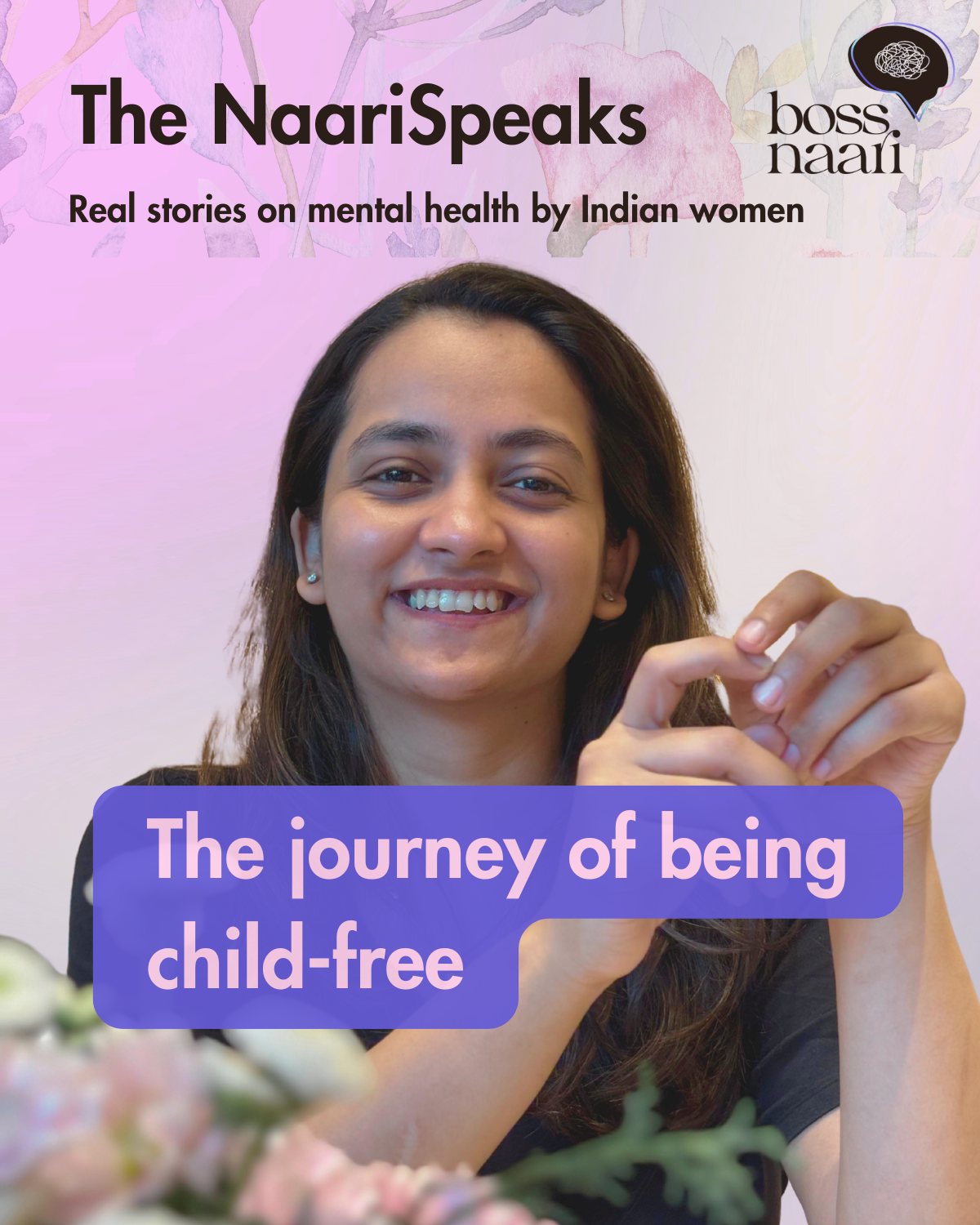
Boss Naari: Hello Shovna. Thank you for being with us today. When did you first realize that you didn’t want to have children? Was it a gradual realization or a clear decision?
Shovna: For me, the realization came slowly. Growing up, it always felt like life was meant to follow a checklist: complete your education, land a stable job, get married, and eventually have children. We were raised to believe that was the natural order of things, something we had to follow, no questions asked. But when I moved out and started living alone, I slowly began to understand what I truly wanted from life and my priorities. Fortunately, I met a partner who shared similar values and aspirations. Once we got married, it became clear that choosing a child-free life was something we both genuinely wanted.
Boss Naari: How did your parents react when you shared your decision to remain child-free?
Shovna: Both sets of parents were, and still are, quite disappointed with our decision to remain child-free. It hasn’t been a one-time conversation, but an ongoing discussion over the past few years. Every time we talk about it, they bring up the same concerns, often wrapped in long, emotionally charged statements. From all those conversations, I’ve come to understand that there are two main fears behind their resistance: one is that, eventually, we’ll get bored and need something to bring joy or purpose to our lives, and the other is that we’ll have no one to look after us when we’re older.
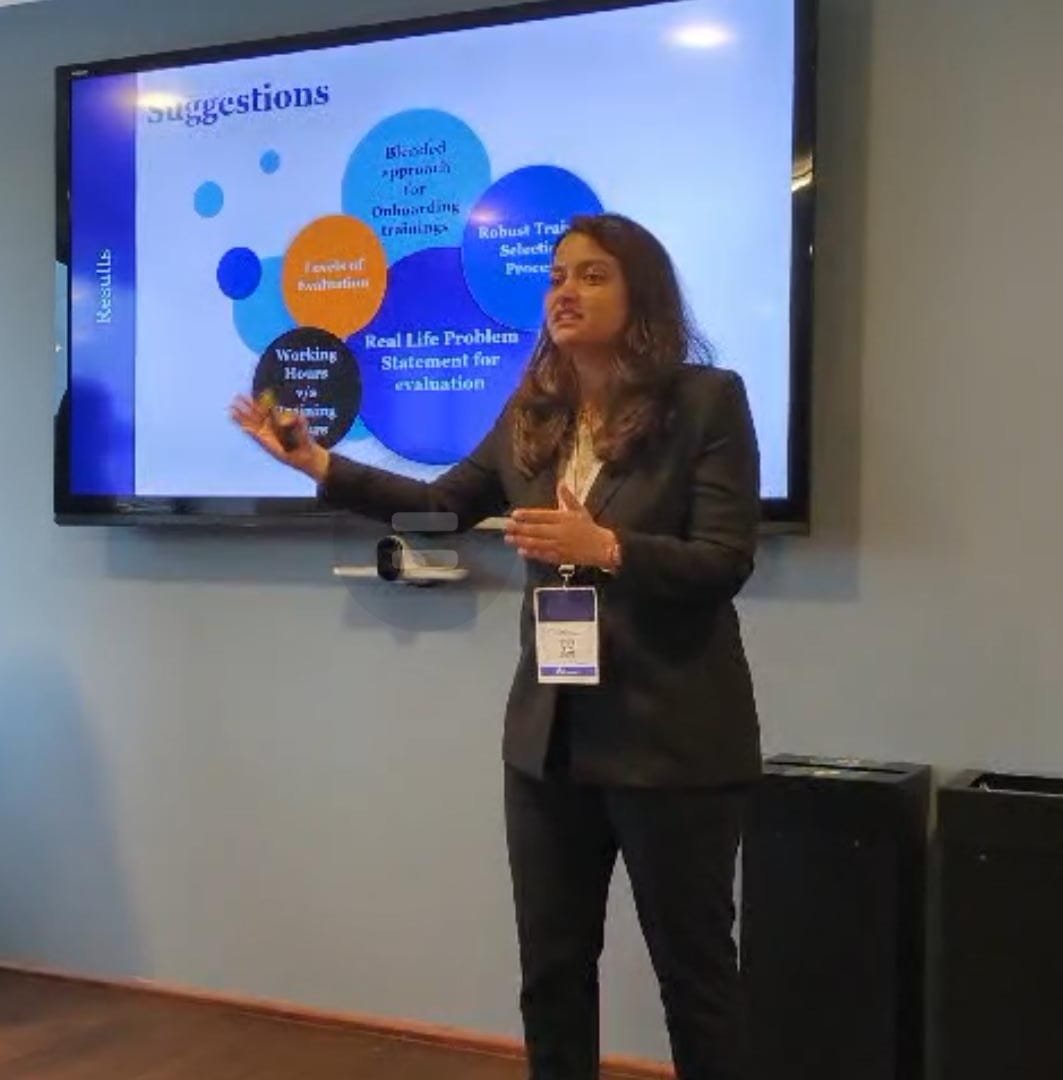
Shovna being confident in her decisions, whether it’s a presentation or parenthood.
Beyond these, the rest feels like emotional pressure. Statements like “We need something to look forward to” or “We’re old now, we need something in our life” feel more like manipulation. When I try to explain the impact a child would have on my career and the compromises it would demand, they dismiss it with impractical suggestions like, “You can leave the child with us whenever you need a break.” But that’s not how parenting works. You can’t just hand over that responsibility. It’s been 3 years since we got married, and ever since the first year, this topic has continued to resurface. The disappointment hasn’t faded, and it’s something we’re still learning to manage together.
Boss Naari: The pressure can be really daunting, right? Do you ever feel overwhelmed by it? And if so, how do you deal with it?
Shovna: Of course, and I want to mention that it’s always me who gets questioned, never my husband. Whenever we’ve had discussions with both sets of parents, it’s always been me speaking for both of us. I often say, “If you don’t trust me or think I’m the only one making the decision, you can speak to my husband.” But that never happens; he’s never questioned, never asked to explain. It’s always me at the receiving end of these questions, and yes, it does get overwhelming.
I find it difficult to convince them that I’ve really thought through the decision. It feels like they don’t trust my maturity in being able to make the choice and I’m unable to articulate how strongly I feel about not wanting this role in life. I have nothing against people who choose to have kids, I love children, but it’s just not something we want for our lives. Both of us feel this way. And yes, when it’s just me handling all the questions, it feels incredibly isolating. It’s as though I’m the only one in this, carrying the burden of their doubts and concerns.
Boss Naari: That must have been hard to deal with, Shovna. Especially when you are the only one carrying all the weight. Have you ever felt like people assumed this was only your decision, like they believed it was just you who didn’t want kids?
Shovna: As I mentioned earlier, when I started having this conversation with both sets of parents, they did assume it was me who was making the decision, that I was the one who didn’t want a child. They would ask things like, “Did you even discuss this with your partner?” And that’s when I started saying, “Why don’t you ask him? Why is it only me you’re questioning?” But he’s never been asked. He only gets second-hand updates from me about what happened in those conversations. He’s never been directly involved or present in those discussions.
But one thing I’ve noticed is that whenever I tell our close friends about our decision, I’ve never faced that kind of response. I feel like our generation understands this better, especially what women go through. Even though both partners are equally responsible, you can’t ignore the fact that in the Indian context, the mother always ends up being the primary caregiver. I’ve never really seen it any other way. So yes, to a large extent, it’s our parents’ generation who still hold onto those expectations. And now that the topic has reached the relatives, they’ve started asking my mom if there’s a health issue involved. Things like, “Is something wrong with her? Shouldn’t you take her to a doctor?”
Boss Naari: That must be frustrating! How do you feel when people try to persuade you to have kids by sharing how fulfilling parenthood has been for them? How do you usually respond in such situations?
Shovna: It’s interesting because I’ve met two distinct groups of people in this context. One group is absolutely sure they want children and are enjoying the experience. On the other hand, I’ve also spoken to new mothers, and though they say that seeing their baby brings immense joy, there’s often a subtle hesitation in their words. They always add a reminder to “think carefully” when deciding to have kids, which suggests they’re not fully comfortable with the choice themselves. I sense that they feel trapped by societal expectations—they can’t openly admit to any doubts about motherhood without being judged as “bad mothers“. I’ve noticed that many of them have to make significant compromises in their lives once they become mothers, and this has left them questioning their own decisions in ways they may not feel free to express. It’s two very different schools of thought.
Boss Naari: What are some of the best things about being child-free that people might not realize?
Shovna: It’s still early on, but I already feel the freedom that comes with the choice. My husband and I have been discussing our vision for a child-free life, and it’s empowering to imagine the space it allows us. It’s only been 3 years since we made this decision, so I can’t fully speak to the realities just yet, but I can see how it might unfold. For example, in the future, if my parents were to grow old or fall ill, I could be there for them, without being concerned about a child’s school routine. I’ve seen my mother struggle with not being able to visit her parents when they were unwell because of my exams. It was emotionally draining for her, and there was always a sense of guilt when she left that she wasn’t prioritizing us. I don’t want to be in that position. My priorities are clear: in the future, I want the freedom to be there for my parents or anyone else who needs me, rather than feeling stuck in a situation where I must prioritize something else because of family responsibilities. Also, the world feels like it’s getting more unsafe, and every day there’s news of something disturbing happening. I don’t want to live with that constant anxiety about letting my child out into the world. Whether it’s a girl or a boy, I’d feel equally anxious. I just don’t want to go through that kind of worry and fear.
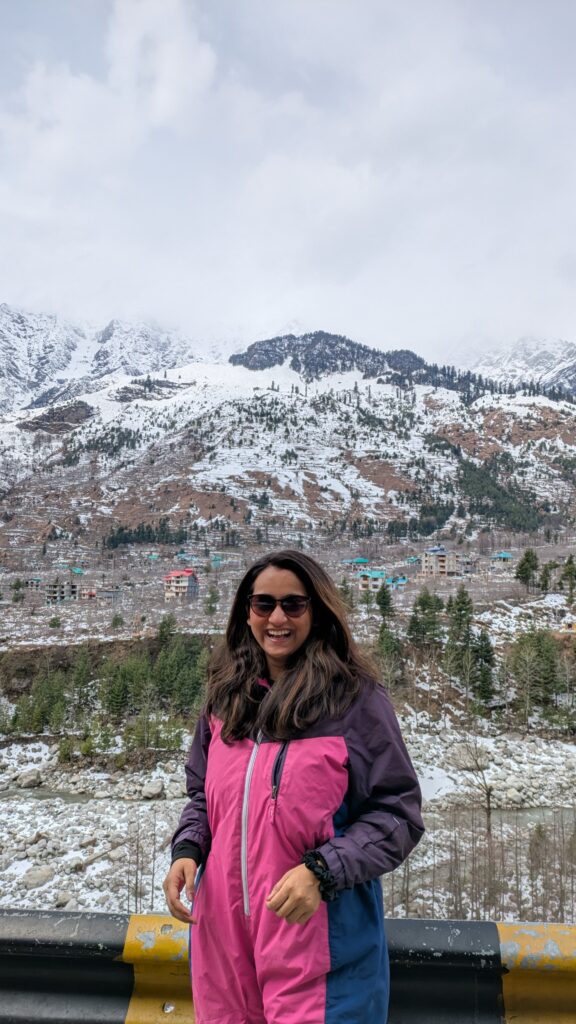
Boss Naari: How did you and your husband meet? Were you both aligned on the choice to be child-free from the beginning or was it something you discussed and decided on together over time?
Shovna: I’m not sure if his decision was gradual, but from what I understand, he never really thought about having kids. Women are often conditioned to think about these things, like having kids before 30, but I don’t think men are told the same. Their checklist usually ends with getting a job and getting married, and even when women marry after 30, there’s still that question. For him, there wasn’t that pressure. He loves children and enjoys being around them, but we both have other aspirations in life. After we got married, I casually asked him how he felt about having kids. He hadn’t thought about it, and we started discussing it. I told him clearly that I wasn’t ready now, but if I were to have kids, I could consider it up to 35 or 36. Beyond that, it would be risky for my health, and I wouldn’t be mentally prepared. Over time, we both realized we didn’t want children, and that’s when we became certain. It wasn’t just a one-time discussion; it was an ongoing conversation as we got to know each other better.
Boss Naari: Have you ever questioned or reconsidered your decision? If so, what prompted those thoughts?
Shovna: Till now, I haven’t changed my mind, even though my mom often tries to convince me. I’m happy to see kids, but I’ve come across many child-free women, and that has been empowering. For example, I work with a manager who’s 46 and has chosen to be child-free. She shared her concerns with me: one being that, as you get older, you may wonder who will take care of you, and the other being the fear of boredom. She’s content with the idea of finding someone who can be there for her in her old age. In India, we have many resources to support the elderly, so I’ve done some research on that. It reassures me that there are options to care for me in the future. I feel empowered knowing I’m not alone in this choice. I’ve also come across many couples and individuals on platforms like Instagram, where being child-free is becoming more common. It’s nice to see that this decision is gaining more acceptance.
Boss Naari: If you could change one thing about how society views child-free people, what would it be?
Shovna: I believe the shift is happening with our generation. When I talk to friends or cousins in our age group, they understand my perspective. It’s the older generation that is still stuck on this idea. They’ve been conditioned to think a certain way, and while they might not fully grasp our viewpoint, I remain hopeful that over time, as they see us living happy and fulfilling lives, they’ll understand. However, I’m pretty sure they won’t get it right now. I’ve heard my mom say things like, “We had you and your brother, and we had the most fruitful life, so we want that for you.” But having kids isn’t the sole determinant of a fruitful life. There are so many other ways to find fulfilment. Each person’s definition of a fruitful life is different, and for me, kids aren’t the only measure. That would be my message to those who still don’t understand.
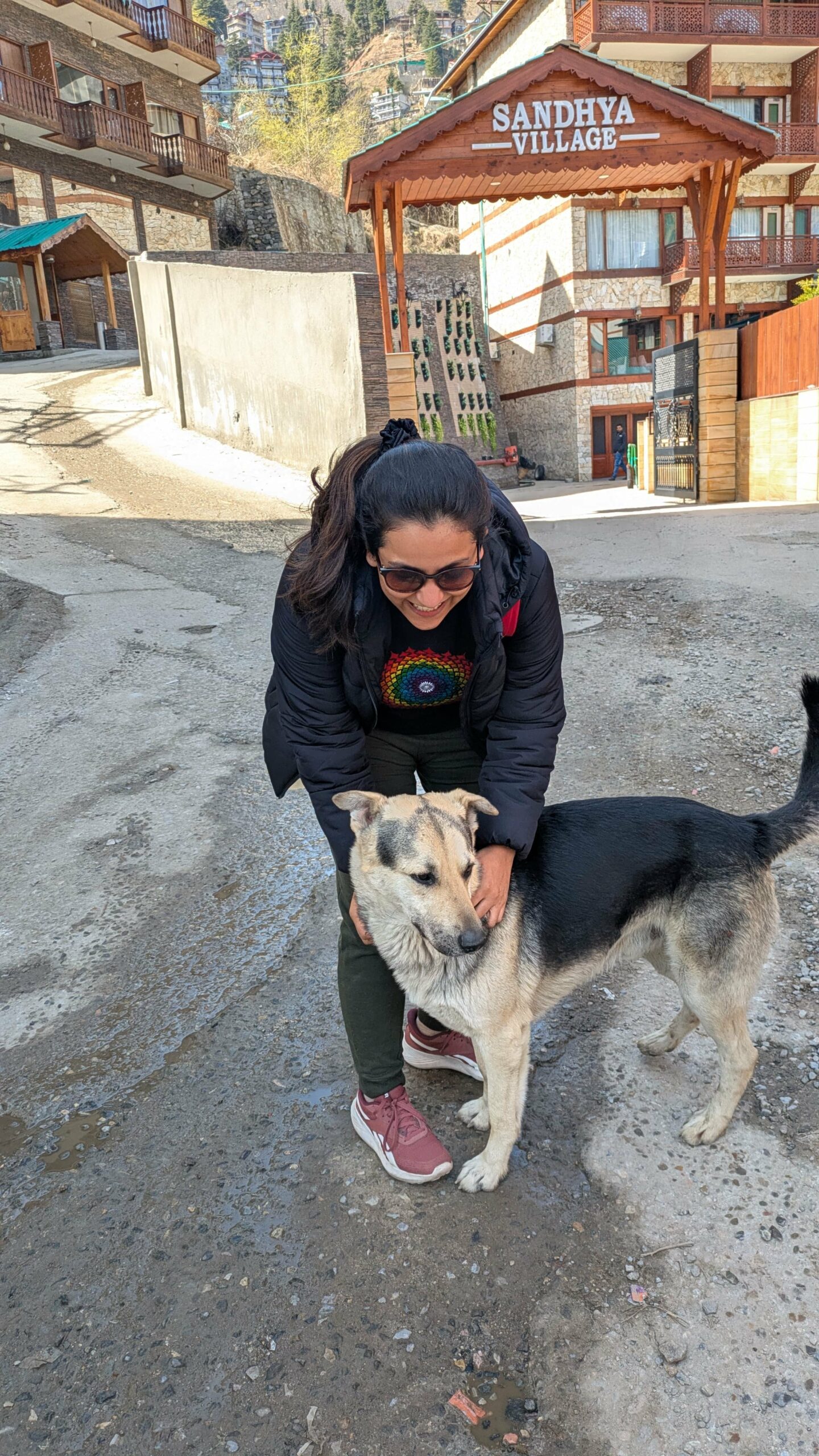
For Shovna, wholeness isn’t about motherhood, it’s about moments like these
Boss Naari: What advice would you give to someone unsure about whether they want children or not?
Shovna: If someone is unsure about having children, I would suggest giving it more time. It’s okay not to have an immediate decision. If, after a few years, you still feel strongly about having a child but it’s no longer biologically possible, there are alternatives like IVF or surrogacy. While these procedures can be costly, they do offer a chance to have a child if that’s something you want. Adoption is also a wonderful option if you’re open to it.
If you’re sure about having kids, then I’d advise discussing it with your partner and talking about how you’ll navigate your life, resources, and responsibilities together. It’s important to be prepared for the reality of it, including how it might affect your lifestyle, career, and other dreams.
One thing I often think about is what happens when our friends have kids, and we don’t. As we get older, we may face the reality of seeing them with their families while we don’t have that experience in our lives. It’s something to consider and prepare for emotionally. Knowing how you would cope with that feeling can help in making this decision.
Want to be featured on NaariSpeaks?
Do you have a story that could inspire another woman or help someone going through a similar journey? We’d love to hear from you and share your voice with our community.
Liked what you read?
Sign up and get the latest blog posts delivered straight to your inbox.
We respect your privacy
Related Arcticles

Back in the 90s, women weren’t ‘supposed’ to start businesses. Vrinda did anyway
Back in the 90s, women weren’t ‘supposed’ to start businesses. Vrinda did anyway Starting a business with no financial backing, and still leading it at
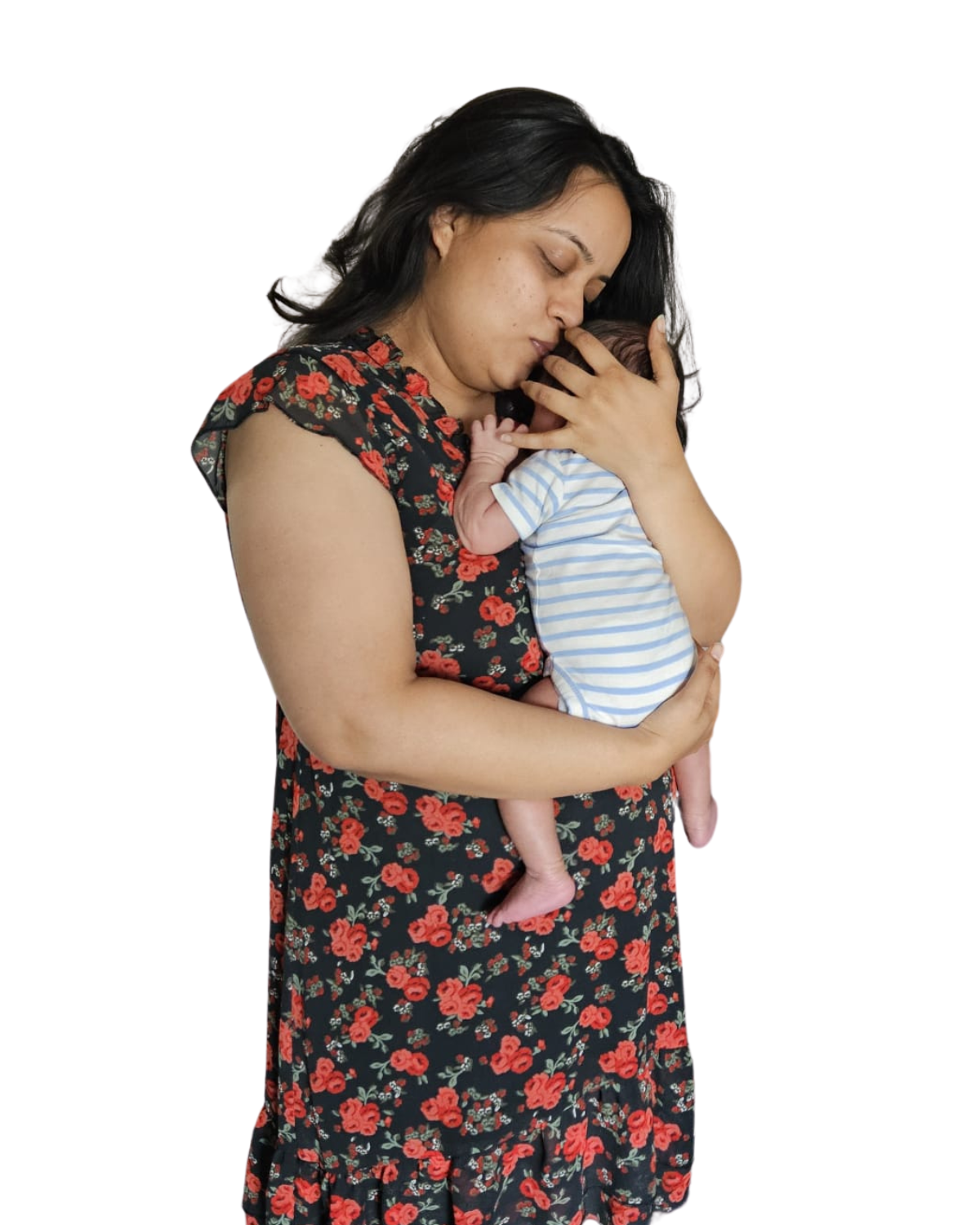
The Unseen Side of intra-uterine insemination
Suchandra, an Indian woman, conceived her baby in the Netherlands through IUI. While the treatment worked on the first try, a rare, unpredicted complication during pregnancy led to an arduous journey. What was her story, and what critical advice does she have for others navigating fertility treatments? Read more to find out.
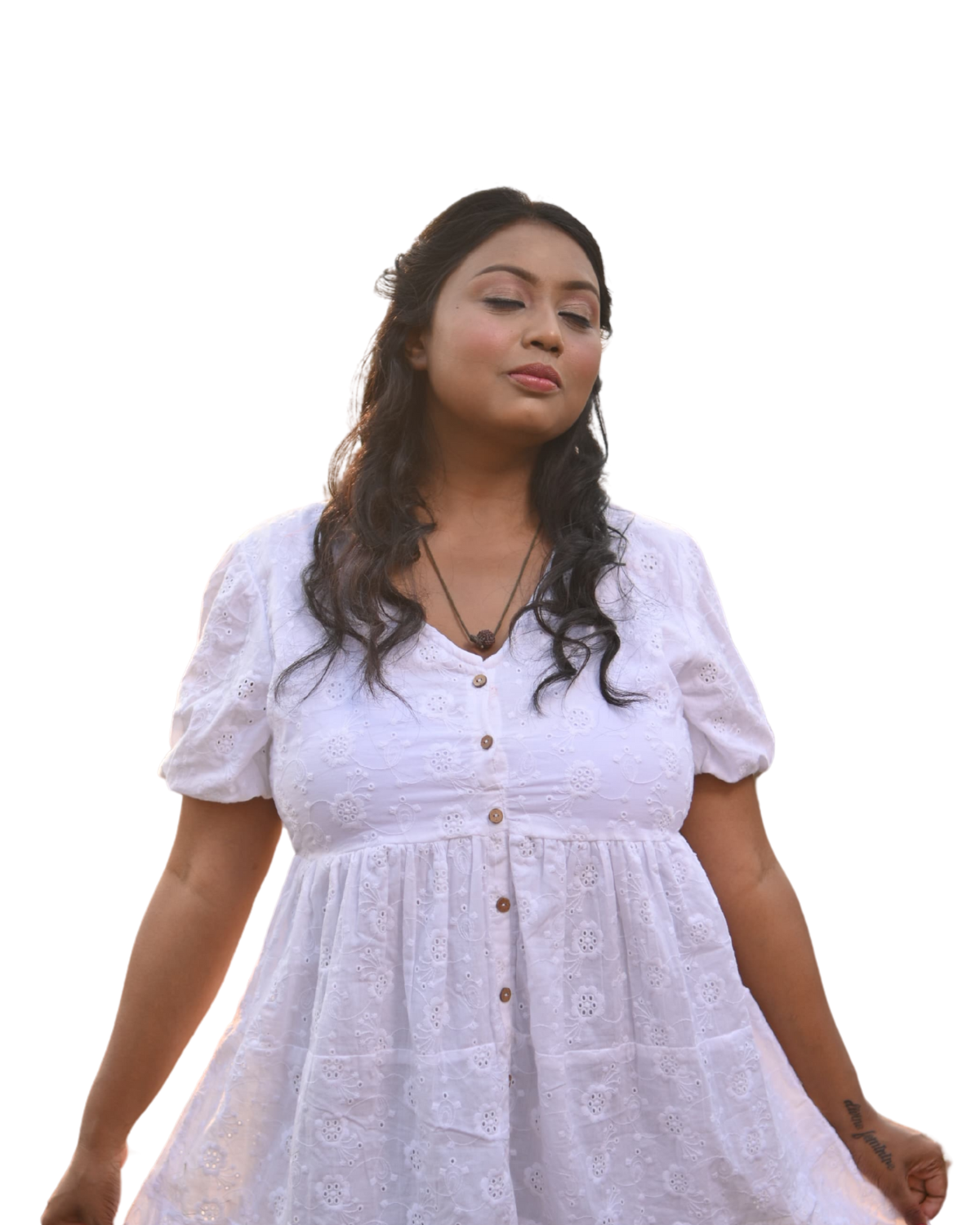
Letting Go of a Career Path
Discover the story of Alina, who left India to chase her medical dreams in Russia, battled depression, survived a COVID-19 pandemic and a war, and found healing through faith, creativity, and self-discovery.
